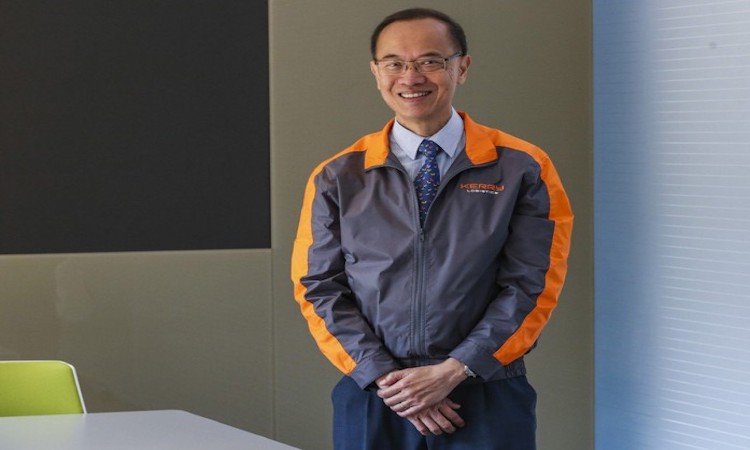Ex-minister George Yeo: Huawei ban won’t stop spy threat when US and others are doing it too

Countries risk being vulnerable to spying if they use foreign telecoms providers, but banning Chinese companies such as Huawei will not eradicate the issue, Singapore’s former foreign minister George Yeo has said.
Yeo, Singapore’s foreign minister from 2004 to 2011 and minister for trade and industry for five years before that, said the suggestion that Huawei equipment would allow the Chinese government to spy on customers was one-sided.
“To be worried that 5G can expose you to foreign intelligence efforts is a legitimate worry, and every country must take precautions,” Yeo said in an interview with the South China Morning Post.
“It is not just China which may enter your system – the United States and others are also trying to enter your system. If you are a small country, it is very tough because you don’t have all the capabilities.”
Yeo, the chairman and executive director of Kerry Logistics Network, said that during his time in government Singapore asked BlackBerry to build a data centre in the city state so that data would not have to go through Canada.
“In the field of intelligence, trust nobody and take your own precautions,” he said.
The US was concerned about alleged spying by Huawei partly because if more countries used the company’s equipment, American intelligence could be prevented from doing its own snooping, Yeo said.
“The Americans are so worried about Huawei not only because Huawei represents a possible vulnerability, but because using Huawei also makes it harder for American intelligence to gain access into other people’s systems,” he said.
“Huawei has been talking about the Americans’ Prism surveillance system, which [American whistle-blower] Edward Snowden divulged was collecting information, even tapping [German Chancellor] Angela Merkel’s telephone conversations.
“If you have a Huawei system it is harder for the Americans to do all this. So we can understand why they are not happy with Huawei.”
In February, Huawei’s chairman Guo Ping denied his company had “back doors” in its equipment that facilitated spying and referred to the US intelligence work exposed by Snowden.
The US has been pressuring its allies to impose blanket bans on using Huawei 5G equipment and networks, and has threatened to reconsider sharing intelligence with them.
Canada, Australia and New Zealand have banned Huawei, while the European Union said this week it would not block Huawei but would increase scrutiny of it.
“The Europeans are not complying, the British and the Germans are going their own way, and more and more countries will take their alignment from Germany and Britain,” Yeo said.
The solution, especially for smaller countries, he said, was to identify vulnerabilities rather than ban a specific provider.
“The solution is not to say ‘I ban Huawei’, but to go into smaller granularity about exactly what you are afraid of, what is vulnerable and how to armour-plate those things,” he said.
“I don’t think it’s a binary problem; the answer is to go deeper, and all countries should begin to do that not just with respect to Huawei but with every telecom system that they allow into their country.
“It is not just Huawei that poses an intelligence threat – all the major powers pose an intelligence threat to small countries.”






